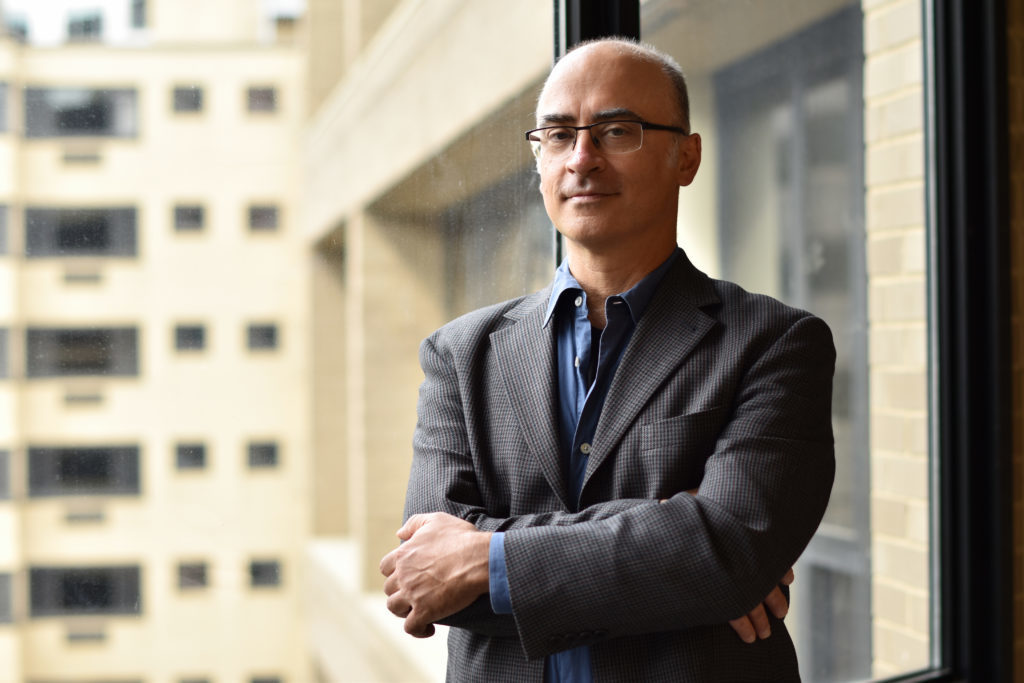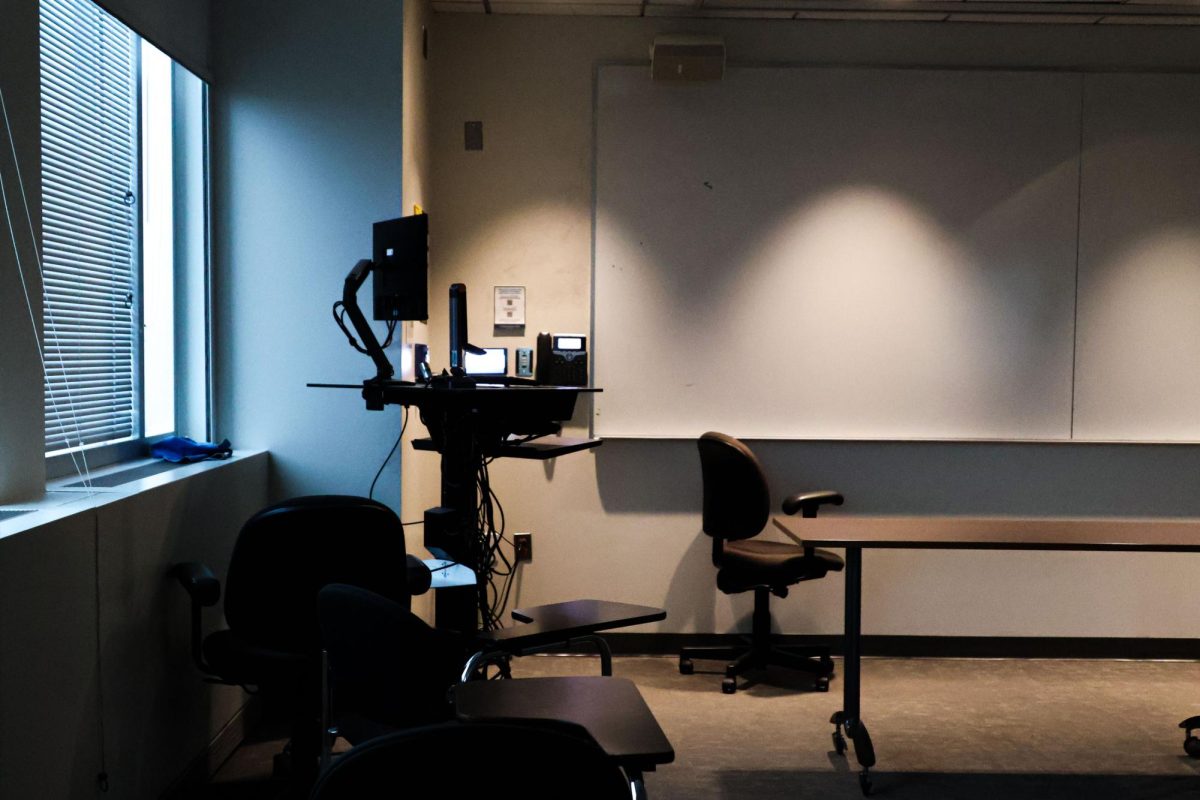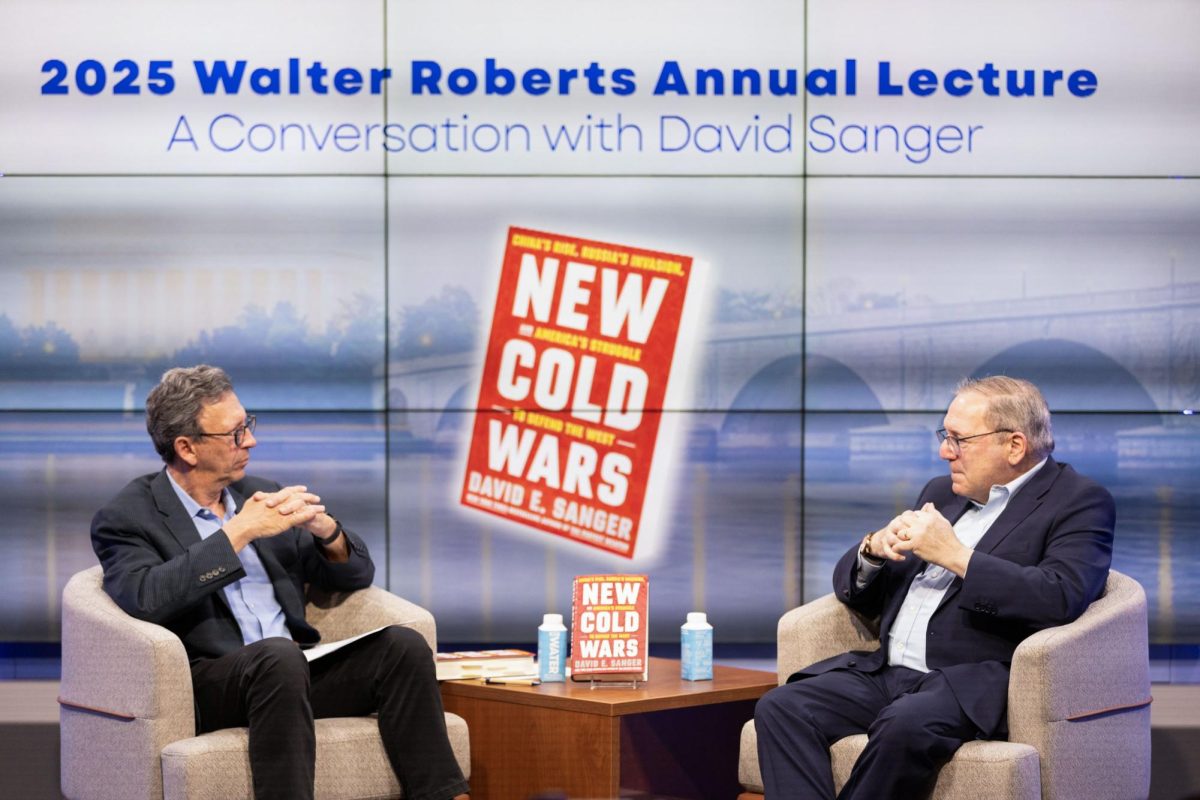The philosophy department will host an alumni conference Saturday as part of an effort to involve alumni with the department and its programming.
Faculty in the department are reviving the conference, which will be held in the Elliott School of International Affairs seven years after they held a similar event, to bring together the department’s alumni. Faculty said they aim to create a tighter-knit department that connects department alumni with faculty and students and encourages alumni to follow department news and events.
Tadeusz Zawidzki, the philosophy department’s chair, said the conference will feature four faculty-led panels where members will speak about philosophy-related issues, like the morality of using technology to improve humans’ physical and mental capabilities.
He said that while the first conference in 2012 centered around networking and engaging alumni already active in the department, the upcoming conference will focus less on career advice and more on open discourse. He said the conference is designed to engage more philosophy department alumni and to involve undergraduate philosophy majors and minors in department programming through an interactive, discussion-based event.
“I want them to have an appreciation for rigorous philosophy and pressing issues in the contemporary world,” Zawidzki said.
The conference is open to graduate and undergraduate philosophy students and alumni, according to the department’s fall newsletter. The event will consist of a series of four discussion panels each composed of one student, one alumnus and one faculty member who will discuss a particular philosophical issue, the newsletter states.
Zawidzki said his department has suffered historically with poor alumni engagement. He said faculty want their students and alumni to feel that they are “at home” in the department when discussing philosophy and their careers, present and future.
“I want this event to rekindle their love and passion for philosophy,” he said.
He added that the event could have the added effect of encouraging more alumni to donate to the department.
“It would be nice if we could get some more contributors because the ones we have are very generous, but it’s a very small base,” Zawidzki said.
David DeGrazia, the Elton professor of philosophy, will lead the event’s first panel, which will concern the ethics of artificial intelligence. He said his panel will explore the “distant” possibility that AI systems and robots become sophisticated enough to become sentient in their own right.
“I discuss how difficult it will be to know whether these artificial entities are conscious and have feelings and then finally explore some implications if we come to believe that they actually do,” he said.
DeGrazia said he looks forward to faculty reuniting with former students and building “a sense of community” through the conference.
“To see students you have a history with, but have lost touch with, and for them to have a chance to see us and how the department has changed, is pretty exciting,” he said.
Eric Saidel, an assistant professor of philosophy, said the panel he will present with is entitled “Truth and Logic in Public Discourse.” He said the panelists will discuss the advantages and shortcomings that humans display in cognitive reasoning because of their natural biases.
“I’ll be talking about human abilities and foibles when it comes to reasoning and what the possible explanations for the foibles might be,” Saidel said in an email. “I’ll bring some evidence from cognitive science to the discussion of human reasoning.”
Saidel said he is excited to see what his former students are doing and how they have progressed in their lives since their graduation.
“I’m interested in them as people, and as such, I’m interested in seeing them again and in learning how they’ve grown and changed,” he said.
Laura Papish, an associate professor of philosophy and another panelist, said her group will address solipsism, a concept describing how people cannot be sure that anything outside of their own self exists, and self-deception, or how people can trick themselves into believing information that is false.
“If I lie to you about something, it is easier to understand how or why you would believe it, but how you do that with yourself is a lot harder to figure out,” Papish said.
Papish said she looks forward to catching up with philosophy department alumni she has not seen for “years” because she wants to know more about what they have become interested in after graduating and find out what they do for a living.
“I really just want to see those people again and find out about all the fun things they are doing now,” she said.








